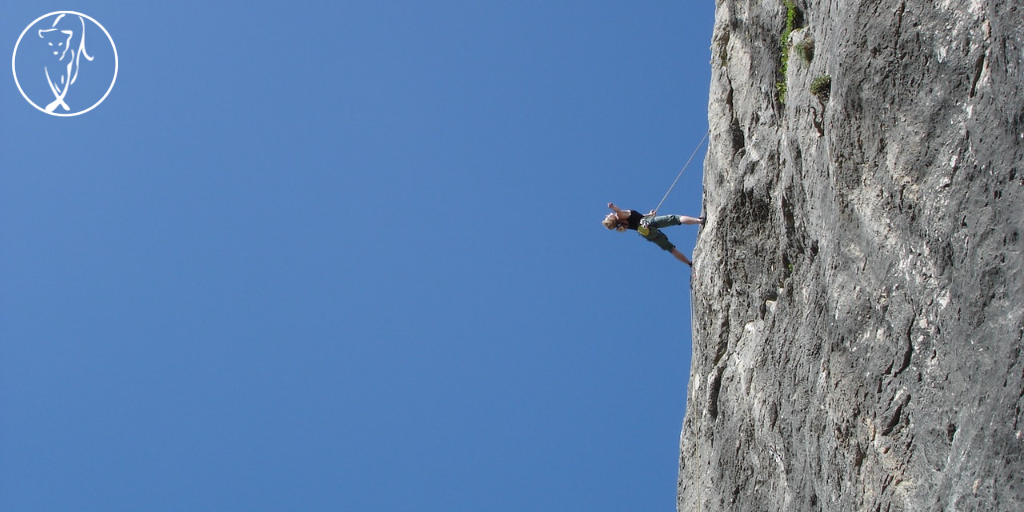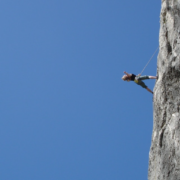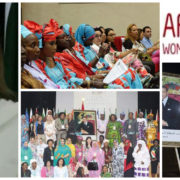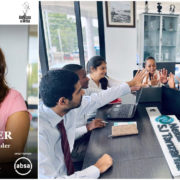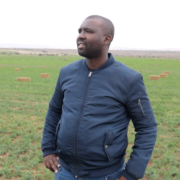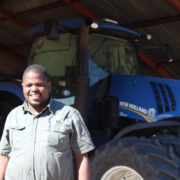Sujata Jaffer runs four companies consecutively including Nexia SJ Tanzania and associated companies Corporate Management Consultants Limited (CMC), International Tax Consultants Limited (ITC) and Corporate and Legal Services Limited (CLS) and provides strategic leadership to 40 professionals. She has strategically led Nexia SJ Tanzania to become a firm serving more than 200 clients. Nexia SJ Tanzania is a member firm of Nexia International which is head quartered in the United Kingdom and has offices in over 120 countries worldwide. It is currently the 8th largest Accountancy Network in the world! Sujata is the only female Board member of EMEA (Europe, Middle East and Africa) for Nexia International and chairs the Sub Sahara Africa region. She has been recognised with a number of awards including: Africa’s Most Influential Woman in Business and Professional Service by CEO Global South Africa in 2017; Personality of the Year Award at the International Accounting Bulletin (IAB) Awards 2018 which was held at the iconic Waldorf Hilton Hotel in London; Winner of Nexian of the Year Award 2018. Sujata was also the first female president of the Rotary Club of Dar es Salaam. She invests considerable resources in raising professional developments standards and learning enrichment programmes. She promotes Gender Equality and Diversity in the workplace and believes in empowering women. Sujata also supports local CSR efforts with donations given to education and health programmes. A role model for professional women globally Sujata has earned her reputation as a strategic, client-focused leader. She has successfully led business into new successes by ensuring client relationships and services exceeded expectations through managing the wider teams and dedicating her expertise and experience in the industry.
Lioness Weekender learned more about Sujata’s business building journey and her aspirations for the future.
What does your company do?
Audit, Accountancy, Tax and Assurance. We offer the following range of services, amongst others:
• Accounting
• Auditing
• Tax compliance, Tax Audits and Tax Investigations
• International Tax and Transfer Pricing
• Business Advisory Service
• Management Consultancy
• Company Secretarial Services
• Information Technology Consultancy
• VAT
• Payroll Services
• Corporate Finance Service
• Formation of Companies
• Banking/Transaction Services
• Forensic Accounting and Auditing
• Procurement Audit, Performance Audit & Value for Money Audit
• Financial Due Diligence
• Mergers and Acquisitions
• Dissolution of Companies
• Human Resources
• Procurement audit
• Assurance services
• Project & feasibility studies
What inspired you to start your company?
When I started my companies, I noticed that there was a gap in the market between the big four and small firms. There were no mid-tier firms to provide professional good quality services to the mid-sized companies that were growing fast and needed assurance and advisory services. I had with me the experience of working in the big 4 and an ambition and drive to make a difference. I also had a dream to work for myself and provide equal opportunity for both women and men to build their careers.
Why should anyone use your service or product?
We approach our work with a 360 degree angle view, and this is what makes us unique from other firms. We are able to provide tailored solutions to our clients as all of our staff are qualified and trained. We believe in personalized services, and we strive to be a valued advisor.
Tell us a little about your team
My firm is widely respected for being an equal opportunity, gender equality and multi-cultural firm to bring diversity at the workplace. I have put in place organizational strategies, policies, and practices to empower women. We have a staff complement of 40 professional staff which are highly motivated and skilled and work effectively together.
Share a little about your entrepreneurial journey. And do you come from an entrepreneurial background?
In 1993, Sujata commenced her career as audit manager at Pricewaterhousecoopers, leading and supervising a team of auditors. In 1999 she progressed to Senior Audit Manager at Deloitte and Touche specializing in Audit of donor-funded projects, banking and financial institutions and insurance companies.
In 2003, Sujata formed her own company Nexia SJ Tanzania (formerly PKF Accountants & Business Advisors). She is the Managing Partner of Nexia SJ Tanzania, a leading firm of Accountants and Auditors in Tanzania. In 2020, Sujata expanded into Kenya and formed Nexia SJ Kenya.
What are your future plans and aspirations for your company?
My future plan is to grow the firm and expand into the region.
What gives you the most satisfaction being an entrepreneur?
Being able to give back to society is the most satisfying feeling for me! I will continue to rally support and raise the awareness and funds to support people throughout our local communities, improving their quality of life and playing our part in protecting our planet.
What’s the biggest piece of advice you can give to other women looking to start-up?
Follow your dream and never give up! You will surely succeed with perseverance and focus on your goal.
To contact Sujata Jaffer and to learn more about the work of Nexia SJ Tanzania, send an email to: sjaffer@nexiasj.co.tz or visit the company’s website and social media pages:
WEBSITE | FACEBOOK | INSTAGRAM
Learn more about Sujata Jaffer’s personal entrepreneurial journey
Board leadership:
In recognition of her extensive efforts in business and the network, Sujata is the first and only female appointed on the EMEA (Europe, Middle East and Africa) Board of Nexia International. She also chairs the Nexia’s Sub Sahara Africa region, drawing upon her impeccable track record serving various industries and sectors. Sujata’s active participation is also evidenced by her efforts to attend Board Meetings, training seminars and other events facilitated by Nexia International. Since joining Nexia International and heading the Sub Saharan Africa, Sujata has led the transformation of the network’s global business expansion by: Mobilising recruitment of new member firms in in Uganda, Kenya and Zambia; and Setting strategies to strengthen the network and business in the Sub Saharan Africa.
Much of Sujata’s success and fulfilment is attributed to years of hard work and dedication. A mother of two, she always dreamed of having a successful auditing and accounting career.
A strong and passionate advocate for women’s participation in leadership roles, Sujata supports gender and development initiatives. She has written an article – International Women’s Day: Professional Women Today published by IAB magazine.
Nexia SJ Tanzania has 40 professional staff out of which 40 % of the staff are women and 5 female staff are at Senior Management position.
A strong advocate of giving back to society, she regularly participates in philanthropic activities and regards women empowerment and equal opportunities as integral to Nexia SJ’s success.
Throughout the firm’s culture is a belief that financial, community and environmental performance can and do go hand-in-hand. As a result, the firm and its people have adapted their processes and behaviours in order to think and act more sustainably at every level. This includes developing a framework that supports:
– Social equity (poverty, community, health and wellness, human rights)
– Economic efficiency (innovation, productivity, prosperity)
– Environmental accountability (climate change, land use, biodiversity
As sustainability is amongst its fundamental priorities at Nexia SJ Tanzania, Sujata says: “Corporate social responsibility is a hard-edged business decision. We don’t engage in CSR activities because it is a nice thing to do or because people are forcing us to do it, but because it is good for our business”. Tanzania faces a lot of issues environmentally and socially. Citizens are most concerned with the land degradation, deforestation and over grazing in particular, as well as public services, where poor health services are a major problem.
A number of best practices underpin Nexia SJ Tanzania’s strategic approach to sustainability. The business is focused predominantly on stakeholder engagement, community health and wellness and environmental actions.
Nexia SJ Tanzania listens to its clients, employees and the local community. This interaction ensures that any strategic decisions reconcile disparate views, minimizing negative impacts and resulting in satisfaction for all parties affected, and are aligned to Africa’s and the UN’s Sustainable Development Goals (SDGs).
The firm is widely respected for being an equal opportunity, gender equality and multi-cultural firm to bring diversity into the workplace. Sujata has put in place Organizational Strategies, Policies and Practices to empower women. These are:
• Allow flexible work shifts for women, especially those who are married and mothers
• Grant appropriate maternity leaves – support women who are expecting or recently had children and are transitioning back into the work environment.
• Layout Clear and Concrete Career Advancement Criteria – provide promotion opportunities based on merit
• Target gender-skewed hiring patterns
• Mentorship programs – creating a culture of mentorship and coaching for long-term career development,
• Diversify women workforce – emphasis on diversifying women talent as much as gender diversity.
• Engage interested candidates in leadership training, including effective negotiation skills
• Give more high-profile projects and accounts to qualified women
• Implement Strict and Clear sexual harassment policies
A pioneer for women in practice, on 15 September 2014, Nexia SJ Tanzania joined Nexia International. In October 2016, the firm won Nexia International’s “The Firm of the Year Award” with the network recognizing the firm’s extensive 25% growth, much of which was in the international arena.
Sujata has led her firm to get numerous accreditations, including: Accreditation as
• Authorized Training Employer from ICAEW (Institute of Chartered Accountants England and Wales)
• She has got a Certificate from the World Bank for contributing to Doing Business Guide every year.
• In addition, her firm has got Platinum Accreditation from ACCA as an Approved Employer –for both Professional Development and Trainee Development.
Nexia SJ Tanzania was also named a double finalist in the International Accounting Bulletin Awards 2017, for Sustainability Organization of the Year, as well as Employer of the Year for the second consecutive year.
In terms of community health and wellness, the company supports a number of welfare related initiatives that make a tangible difference to the lives of people in the local community. The firm has engaged in the following activities:
– The firm donated a personalised ambulance where the windows of the ambulance are covered with the firm’s logo. The ambulance was funded by investing a share of the firm’s profits. The ambulance was donated to Mkuranga hospital, in Pwani region. The hospital is connected to 44 health centres and rural clinics, providing health care support 237,960 citizens and this ambulance ensures faster emergency transportation to the hospital, saving lives.
– Provided an incubator and other medical supplies to the maternity unit at Amana hospital (Dar es Salaam), helping to improve the survival rate of new born babies.
– Hosted fundraising events to fund Cataract surgeries in collaboration with Medewell Charitable Centre. The target is to restore vision for over 100 local citizens. At the firm we believe that this initiative extends beyond giving an individual their sight back. It is about reviving communities, family and hope says our managing partner. To date, more than 60 surgeries have been performed as a result of the firm’s fundraising efforts. One recipient of the surgery is Joseph (27) a resident from the village of Bomani, who regained his eye sight after 15 years. Read Joseph’s story here: http://www.medewell.org/josephs-vision-story/. On 24th March 2016, Nexia SJ Tanzania hosted a charity premier screening of Batman v Superman: Dawn of Justice. More than 200 members of the local community turned out to support the event, raising USD 3300 conducting further 33 surgeries. For more successful surgery eye stories, please visit https://www.facebook.com/NEXIA-SJ-Tanzania-290671297784362/?fref=ts
– Every year during the holy month of Ramadhan, Nexia SJ Tanzania distributes food to a local orphanage. A few photos from the distribution can be found on the firm’s Facebook page.
Nexia SJ Tanzania’s involvement in these CSR activities has earned the firm local recognition, elevating their profile throughout the business and local community. This has resulted in the firm engaging with large organisations from other sectors. It has also enabled the firm to enhance client relationship, by strengthening ties, fostering strong work relationship and building alliances. These activities also raise Nexia SJ Tanzania’s profile among the workforce, positioning the firm as an employer of choice where people can professionally and personally pursue their passions.
Strengthening environmental credentials, since its inception Nexia SJ Tanzania has been focusing its efforts on building a sustainable organisation that supports the environment too. It has been a paperless office since 2013. In addition the firm has established robust policies in relation to paper recycling, electrical consumption (switching off lights, office equipment and adjusting the settings of heating and cooling systems to minimize energy waste). These campaigns have reduced the firm’s reliance on natural resources and lowered operational costs by 10%.
Nexia SJ Tanzania also supported several initiatives to engage with younger members of the community. These included: Planting trees in various locations of Dar es Salaam, in collaboration with the Kinondoni Municipal Council (the city’s northern municipality); Enlightening students about the importance of protecting the environment during an education day at Upanga Primary School. The message reached over 500 students.
As a growing economy, Tanzania faces numerous and often complex sustainability issues. With a fast-growing population, reducing poverty and maternal mortality remain key development challenges. Nexia SJ Tanzania is committed to support initiatives that bring about social development that are aligned to the UN’s 17 Sustainable Development Goals (SDGs).
In regard to the engagement in CSR activities, Sujata says: “We will continue to rally support and raise the awareness and funds to support people throughout our local communities, improving their quality of life and playing our part in protecting our planet.”
Sujata has Membership in Professional Societies:
Registered with the Tanzania National Board of Accountants and Auditors (NBAA) as Authorised Auditor in Public Practice. CPA – PP
Registered with Tanzania Association of Accountants (TAA)
Registered with Information Systems Audit and Control Association of USA (ISACA)
Past board Member on the NBAA Governing Board and Member in the Technical Services Committee
Member of the TAA Governing Board and Chairperson of the Education and Training Committee
Member of ISACA – Tanzania Chapter
A pioneer member of IICFIP.
Member of American Businessmen Association (ABA)
Member of CEO Round Table
Past Director at Swissport Tanzania – A listed company on Tanzania Stock Exchange
Board Member of Nexia International’s Europe, Middle East & Africa (EMEA) Board and heading Sub-Sahara Africa Region.
Sujata specializes in the audit of Commercial Companies, Banks and Financial Institutions and Insurance Companies and Donor Funded Projects & Public Sector. She has considerable experience in risk management consulting with particular experience in investigative audit and managing financial investigations, designing and implementing financial control systems for large organisations and internal audit. She led ‘value for money’ investigations in many of the enterprise’s key processes. She also led large fraud investigations that resulted in dismissals of senior managers, widespread changes to financial management systems and significant cost savings. Other roles included carrying out operating system and control audits where she advised senior management on how to improve controls so as to minimize fraud and run their business more effectively.
She had shared useful insights as a past Governing Board member of National Board of Accountants and Auditors (NBAA) and a member of the Technical Services Committee. She has served as a Governing Board Member on Tanzania Association of Accountants and Chairperson of Education and Training Committee and also a member of ISACA Tanzania local Chapter. In addition, Sujata has been Board member of Swissport Tanzania, which is a listed entity, and she is also a member of CEO round table.
